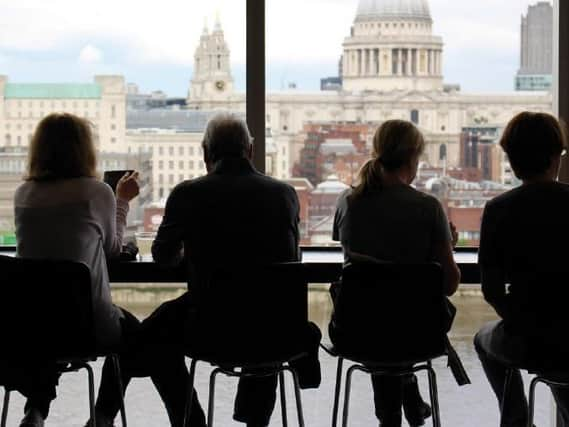'Why is communicating with each other so hard when we are all the same species?'


It’s been a fascinating week for communication – or miscommunication I suggest, depending on how you look at it. We’re all the same species, with so much in common. How, then, is it that we get communication so badly wrong so often?
I realise that I’m now putting myself squarely in the firing line.
Advertisement
Hide AdAdvertisement
Hide AdHere I am, someone who lives and breathes communication, who communicates constantly and yet I’ll be the first to admit that frequently I get it wrong.
In the studio it’s so easy to select the wrong word to speak into the microphone - I must do it at least once in each show.
Is that a failure of language, of communication, or of an overly active brain that somehow miscues a word from its vocabulary?
I can’t tell you – but I guarantee that you do it too.
It’s almost part of our make-up as humans. Accept that for ALL humans and you can see how those slips in communication can easily add up to something far more serious.
Advertisement
Hide AdAdvertisement
Hide AdThings become far more pronounced when we add in the written word.
Words on a page or, more likely, a screen are simply that - dormant until they are joined together.
They are STILL that until they are read. When that happens, they become active – and able to be interpreted or otherwise.
It’s also when they can become downright dangerous.
This week I went on a site visit to a heritage project between Wellingborough and Rushden, which has become somewhat mired in delay. I’d known about it for some time but didn’t really know the detail – only what I’d read in emails and other correspondence.
Advertisement
Hide AdAdvertisement
Hide AdWhen I saw with my own eyes what is being done and learned what the goals are by talking to some of the staff and interested parties who are also involved, I had an altogether different
view.
What I had originally thought of as factionalism or nimbyism turned out to be far more easily understood as points of difference because of the institutions involved and their individual raisons d’etre.
There’s a long way to go for the project, but when you put people physically together and give each the chance to explain their stance at their own pace and in their own language, clarity is what emerges.
This brings me on to Brexit. On the Brexit clock of time we’re now at the point of less than a minute to midnight.
Advertisement
Hide AdAdvertisement
Hide AdRehearsals for lorry parks on the south coast of England have been going on for weeks and the logistics community – a major employer
and feature of the local economy here – is going to be in the first wave of businesses encountering life outside the EU, deal, or no deal.
Even now, as I write this we’re still being told that there is time – albeit very little of it – to achieve a deal.
The negotiators have been gorging on late night pizzas, the Eurostar trains shuttling diplomats back and forth have almost worn out their seat covers and still the apparently fought-for agreement on trade eludes everyone.
Advertisement
Hide AdAdvertisement
Hide AdWe’ve seen a picture – most of it through media reporting I grant you, but much of it from the body language and soundbites of those involved – of delicate discussions or downright pugnacious confrontations.
What are we to believe? Does it matter?
One immutable certainty remains – December 31 will arrive and after its allotted 24 hours we will enter a new era. Harmonious or disconnected? Only time will tell.
Maybe we need the use of Star Trek’s universal translator and HG Wells’ Time Machine for the clearest picture…